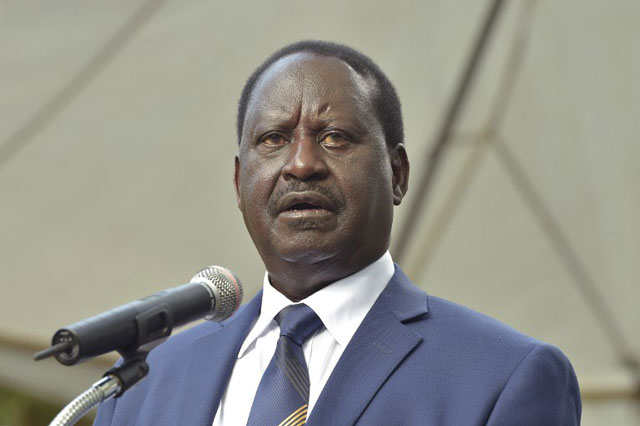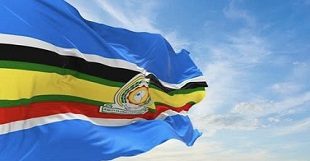
Nairobi, Kenya | AFP | Kenya’s opposition leader Raila Odinga on Tuesday rejected outright the result of last week’s “sham” election, vowing to fight on after the protest-hit poll that handed President Uhuru Kenyatta a landslide win.
“This election must not stand. If allowed to stand, it will make a complete mockery of elections,” he said in his first remarks on Thursday’s presidential re-run, which his supporters boycotted en masse.
Without change, “elections will become coronation rituals,” Odinga warned.
The vote, which saw Kenyatta winning with 98 percent of the votes cast, was the chaotic climax of two months of political drama and acrimony triggered by the Supreme Court’s overturning of an initial August poll over widespread irregularities.
But Odinga did not say whether he would once again petition the Supreme Court to have the vote annulled, as he did back in August.
“We shall see to it that we conduct a free, fair and credible election as ordered by the Supreme Court,” Odinga said.
He spelt out a campaign of non-violent protest and disobedience that would ensure the government would have “no peace” so long as there was no change.
The remarks are likely to extend the political uncertainty that has paralysed the country since September 1.
Despite his successful bid to throw out the results of the August election, Odinga withdrew from the re-run some two weeks beforehand, citing concerns the new vote would be neither free nor fair.
“The Supreme Court ordered a repeat election held in compliance with the constitution and the law. The order has not been complied with… It is in our best interest that we do so sooner rather than later,” he said.
Last week, the 72-year-old leader pledged to transform his National Super Alliance (NASA) coalition into “a resistance movement” that would spearhead a campaign of “civil disobedience.”
On Tuesday, he laid out plans for a programme of “vigorous” political action including “economic boycotts, peaceful processions, picketing and other legitimate protests.”
“If there is no justice for the people, let there be no peace for the government,” he declared.
– New strategy needed –
In his victory speech on Monday, Kenyatta hailed the result as vindication of his triumph in the August poll which was later overturned.
But it proved to be a bittersweet victory.
Turnout was just 38.8 percent, marring the credibility of a vote that has deeply polarised the East African nation, sparking months of bitter infighting, legal wrangling and violent protest.
In an editorial, Kenya’s Daily Nation said that Odinga’s NASA coalition needed to “rethink its strategy”.
“It is not tenable to continue with street protests at a time the nation is bleeding and hurting,” it said of the violent demonstrations that prevented polling in four western counties, prompting two days of running battles with security forces that left nine dead.
– ‘Not ready for dialogue’ –
If anyone had a problem with the election result, “please let’s go back to the courts and raise whatever concerns,” said former South African president Thabo Mbeki who headed the African Union (AU) Election Observer Mission in Kenya.
Kenyan commentator Macharia Gaitho said the conclusion of the elections, however flawed had “shifted the playing field to Jubilee’s advantage”.
“We saw from Mr Kenyatta’s acceptance speech Monday that he is not ready for dialogue. The reality is that failure to act now will be a deliberate refusal to address the festering sores that muddy our politics. Those sores will be the trigger for continuing violence, instability and national decline.”
Aside from some scuffles on Monday after the announcement, things have been largely calm over the weekend.
Security was further stepped up across the country on Tuesday as more than a million pupils aged between 13 and 15 began sitting their Kenya Certificate of Primary Education (KCPE) exams.
The political crisis is the worst to hit the country since a 2007 vote sparked months of politically-driven ethnic violence that left 1,100 people dead
 The Independent Uganda: You get the Truth we Pay the Price
The Independent Uganda: You get the Truth we Pay the Price


